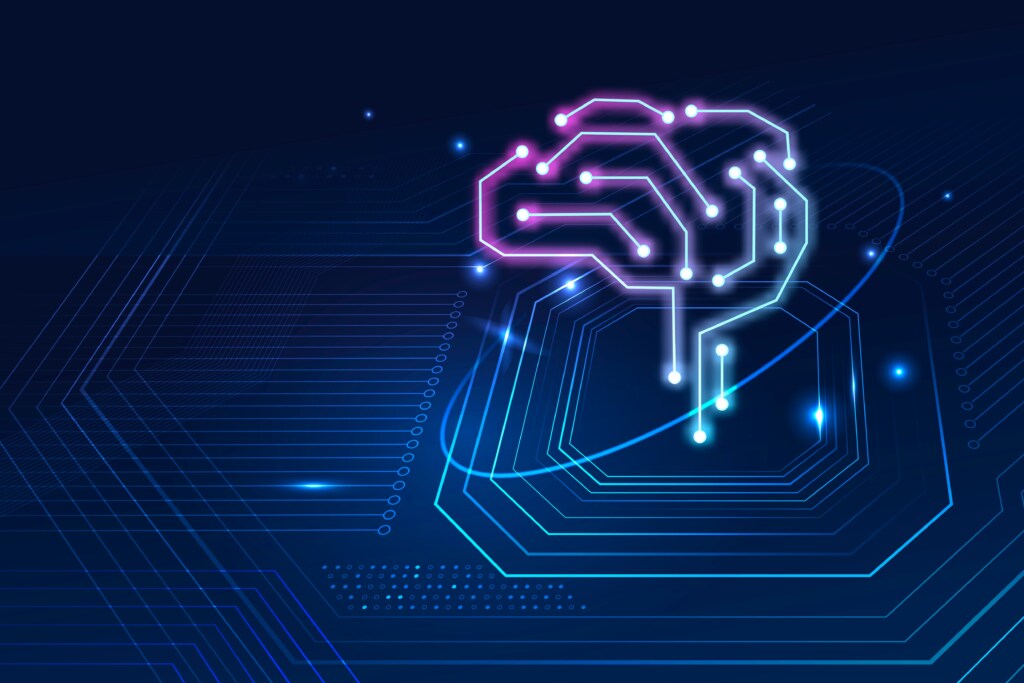
The pace of artificial intelligence (AI) development is astonishing. From the early days of AlexNet in 2012 to GPT-4 in 2023 – and now tools that understand voice, video, and reasoning – we’re looking at a wave of change more significant than the internet boom of the 1990s.
In 2025, leading tech vendors like Microsoft and Google have already embedded AI tools such as Copilot and Gemini into everyday platforms including Excel, Word, Outlook, and Google Workspace – and they’re giving it away for free. For many businesses, that’s the wake-up call. AI is no longer a premium toolset – it’s becoming the baseline.
And if you’re not actively thinking about how to adopt AI into your operations, your competitors most likely are. According to NAIC, 40% of Australian SMEs (1) are currently adopting AI – gaining time, margin, and insight over the rest.
The productivity shift has arrived
The opportunity for small businesses isn’t just to save time – it’s to completely change the way decisions are made.
With tools like Microsoft Copilot, business owners can now do more than just generate text. They can ask:
“How could I automate this approval process?”
“What would be the impact if we changed this pricing model?”
The more detail you feed into the prompt, the more tailored and valuable the response. And if you don’t know where to start, AI can help you get there – by giving you the process, the framework, or even the script to follow.
AI removes the friction of everyday admin and decision-making. Tasks that used to take 30 minutes now take seconds. For a small business, that means your competitor may now have half a day back to focus on customer experience, reduce internal costs, or refine operations. That’s a big shift.
But here’s the catch: most businesses aren’t there yet. Right now, AI is still being used at a surface level:
- To draft a document
- To write specifications
- To summarise meeting notes in Teams or GoTo Meeting
The real power of AI is just starting to emerge. Models like GPT-4 with Deep Research can now work with you to refine answers in real-time. Instead of generating a response and risking errors or hallucinations (the phenomenon where the AI model generates inaccurate, misleading, or nonsensical information as if it were factual), it can reason through a task with you, getting closer to the result you need.
Another key change is that agents can now be directed to work with specific, controlled information. Instead of searching the entire web and pulling in anything it finds, you can use AI agents for only a defined set of knowledge – like a specification or document – making the process far more precise.
The rise of agentic AI
The next frontier is agentic AI – systems (agents) that don’t just respond to commands but act independently on your behalf within strict parameters.
These AI agents can be trained to do one thing extremely well – whether it’s managing invoice follow-up, updating pricing based on rules, or responding to customer requests through a live chatbot.
This shift isn’t hypothetical. Microsoft, OpenAI, Anthropic and Google are all moving toward agent-based systems, ambient agents that run in the background and are orchestrated by a person. And it’s not just for big enterprises – this technology is being built into tools SMEs already use.
Where ERP meets AI: Unlocking strategic value
The real opportunity isn’t just about having access to AI tools. It’s about putting them where they matter most: inside your business systems. This is the future of ERP – not just storing data but helping you act on it intelligently and immediately.
Think about what happens when AI is integrated into Jiwa 7. Instead of just answering, “What’s my next meeting?”, it can tell you where an order is, why margins dropped last month, or whether your inventory levels are sufficient. And you’re getting real-time answers – pulled directly from Jiwa 7. No expensive custom apps. Just actionable insights from the data you already have.
While AI is not yet native to most ERP platforms, external AI agents can be layered on top. One example is Microsoft Copilot Studio, a low-code tool for building AI agents, automation and chat interfaces. Instead of investing a significant amount of money to write an application from scratch, you can now connect AI directly to Jiwa 7 using built-in APIs.
At Attkey, we have developed a Jiwa-trained AI chatbot on our training website. It works by responding to real user questions based on Jiwa knowledge and Attkey’s operational insights. The result? Fewer support calls, faster answers, and better customer experience. If you haven’t used it already, check it out here: https://jiwatraining.com
These tools go far beyond surface-level AI – they’re changing how ERP systems, customer service platforms, and internal operations work.
That’s why embedding AI into Jiwa 7 is a game changer for SMEs. It means AI isn’t just writing content or summarising meetings – it’s making live recommendations, spotting margin shifts, and triggering workflows inside the heart of your operations.
Start small, scale smart with AI and Jiwa 7
Here’s the reality: you don’t need to change everything overnight. The best approach is to pick one process – just one – and explore how it can be improved with AI.
That could mean automating invoice approvals, receiving smarter alerts on overdue payments, or digitising handwritten job sheets with Optical Character Recognition (OCR) and AI processing, such as Azure AI Document Intelligence. Once you’ve seen what’s possible, it becomes easier to take the next step – and the next.
For example, AI can now:
- Read handwritten service reports like a job sheet using OCR and automatically convert them into invoices. These documents can be easily scanned and processed into Jiwa 7.
- Help you automate routine tasks using Microsoft Copilot or custom agents via Copilot Studio.
- Pull from specific data sets (like your own internal procedures or policy documents) and generate accurate, relevant responses without pulling anything from the public internet.
- Handle first-level customer service queries, reducing call volumes and improving response times.
That same model can work for any business – including yours.
The road ahead is faster than you think
AI is no longer a futuristic idea. It’s here, now, and quietly transforming how SMEs operate. By the end of 2025, agent-based AI will be commonplace. And businesses that haven’t adapted by then will find themselves chasing, not leading.
That’s why now is the time to enhance your Jiwa 7 system with automation and AI.
Jiwa 7 brings your data together. AI helps you act on it.
At Attkey, we help SMEs connect the two – embedding automation and intelligence directly into the way you work. Need help setting up Microsoft Copilot and linking it to Jiwa workflows? Want to evaluate your current Jiwa environment for automation potential? Looking to build reliable AI powered agents for service, sales or admin tasks?
Let’s explore what’s possible – and what’s practical – for your business.
Start a conversation with our team today or join our Support Club.
(1) https://www.industry.gov.au/news/ai-adoption-australian-businesses-2024-q4




